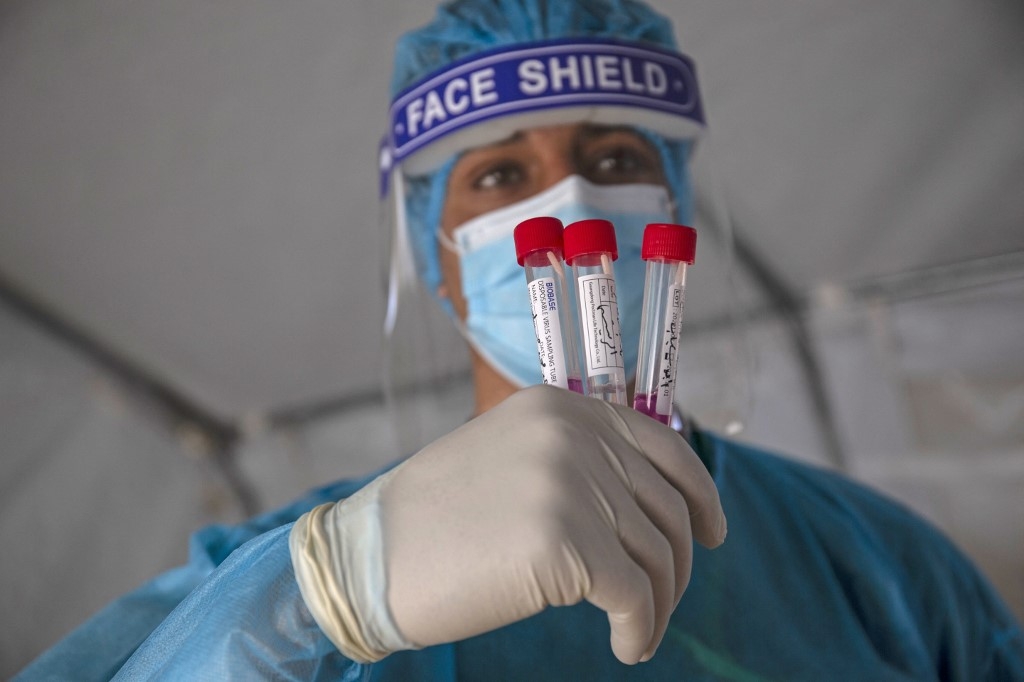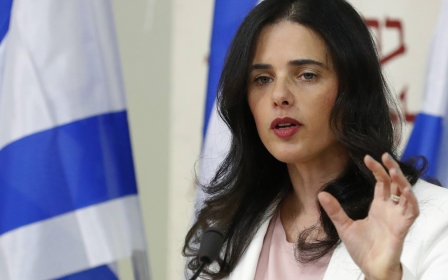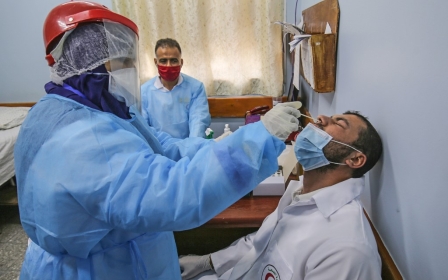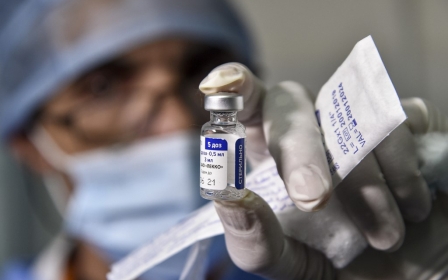Covid-19: Former Israeli minister urges denial of vaccine to Palestinians in Gaza

Former Israeli justice minister Ayelet Shaked called on Saturday for Israel to prevent Palestinians in the besieged Gaza Strip from receiving the Russian coronavirus vaccine.
“As long as they hold our soldiers' bodies they can deal on their own… not even humanitarian aid,” she said on Israel's Kan 11 news channel, referring to the Hamas-led authorities ruling in the Gaza Strip.
'It's a shame and a disgrace that we transferred vaccines to Gaza, as long as our soldiers and our citizens are held there'
- Ayelet Shaked
Hamas holds the bodies of two Israeli soldiers killed during the Israeli military operation launched on the Gaza Strip in 2014, and it captured another two Israelis in September 2014 and another in 2015.
“It's a shame and a disgrace that we transferred vaccines to Gaza, as long as our soldiers and our citizens are held there,” Shaked said.
She did not comment on media reports about Israel buying an unknown number of Russia's Sputnik V Covid-19 vaccine doses for use in Syria, in exchange for the release of an Israeli woman who had crossed the border into the neighbouring war-torn country.
Shaked said that there was an official gag order on the issue.
Israeli Prime Minister Benjamin Netanyahu denied these reports on Saturday evening, saying that Israeli Covid-19 vaccines were not part of the prisoner swap deal with Syria.
"Not a single Israeli Covid-19 vaccine went for that matter,” Netanyahu said when asked about a “secret deal” to release the Israeli woman.
“We brought back the young woman and I have thanked President (Vladimir) Putin for this, but I respect Russia’s request not to say anything more,” Netanyahu said.
Palestinian vaccination campaign
Gaza only received its first batch of vaccines on Sunday. Authorities there have reported more than 54,460 cases and at least 545 deaths since the start of the pandemic.
On 15 February, Israel blocked the West Bank-based Palestinian Authority (PA) from sending vaccines meant for health workers in the Gaza Strip.
The PA had requested to transfer 2,000 vaccine doses to Gaza but the request was “waiting for a political decision", according to Israeli officials - possibly linked to talks between Israel and Hamas, the political group that governs the Gaza Strip.
Israel has the world's highest number of vaccines administered per capita, with nearly half of its population immunised as of Monday - but its vaccine rollout has been tainted by its government's refusal to inoculate Palestinians living under its control.
Israel has faced international criticism for not sharing its vaccine supplies with Palestinians living in the occupied West Bank and Israeli-blockaded Gaza.
Amid criticism, earlier in February Israel sent the PA 5,000 doses to be administered in the occupied West Bank, where nearly 3 million Palestinians reside.
The World Bank has warned that the Palestinians' Covid-19 vaccination plan faces a $30m funding shortfall, calling for Israel to cooperate with the PA and for wealthier countries to donate to help ease the pandemic.
The roughly 32,000 doses received to date fall far short of the 5.2 million Palestinians in the West Bank and Gaza, territory Israel captured in the 1967 war and has militarily occupied since.
Syrian-Israeli prisoner swap
On Saturday, Saudi newspaper Asharq Al-Awsat reported that Israel was funding the purchase of Sputnik V vaccines for Damascus as part of the prisoner exchange deal with the Syrian government.
Israeli news site Ynet also reported on Saturday that Israel had purchased $1.2m worth of doses of the vaccine.
Israel released two Syrian shepherds and removed a suspended prison sentence from the record of a resident of occupied Syrian Golan Heights last week in exchange for the release an Israeli woman who crossed into Syria.
She was initially transferred to Russia, and was later interrogated by Israeli domestic intelligence agency Shin Bet to assess why she travelled to Syria.
Middle East Eye propose une couverture et une analyse indépendantes et incomparables du Moyen-Orient, de l’Afrique du Nord et d’autres régions du monde. Pour en savoir plus sur la reprise de ce contenu et les frais qui s’appliquent, veuillez remplir ce formulaire [en anglais]. Pour en savoir plus sur MEE, cliquez ici [en anglais].




